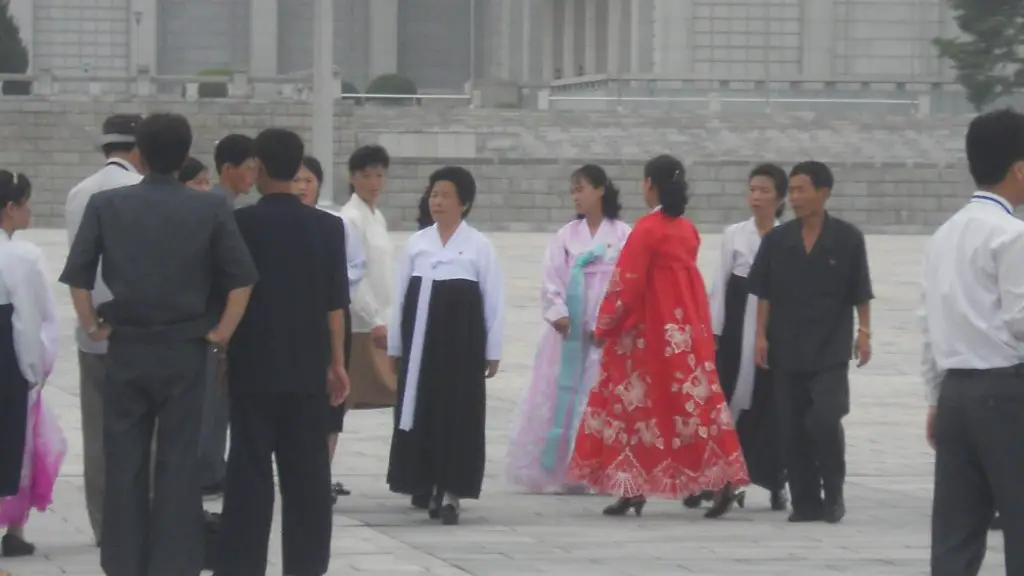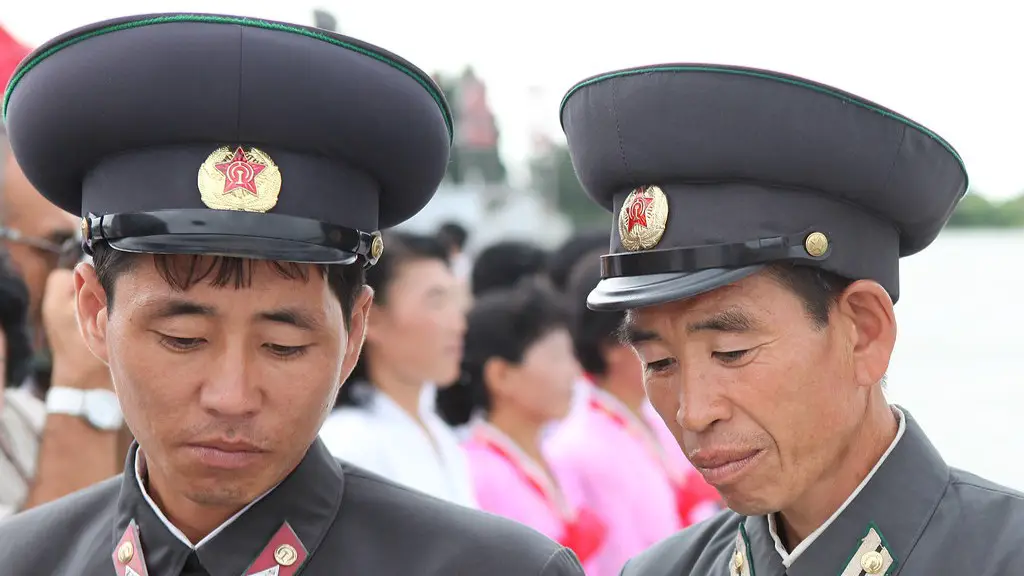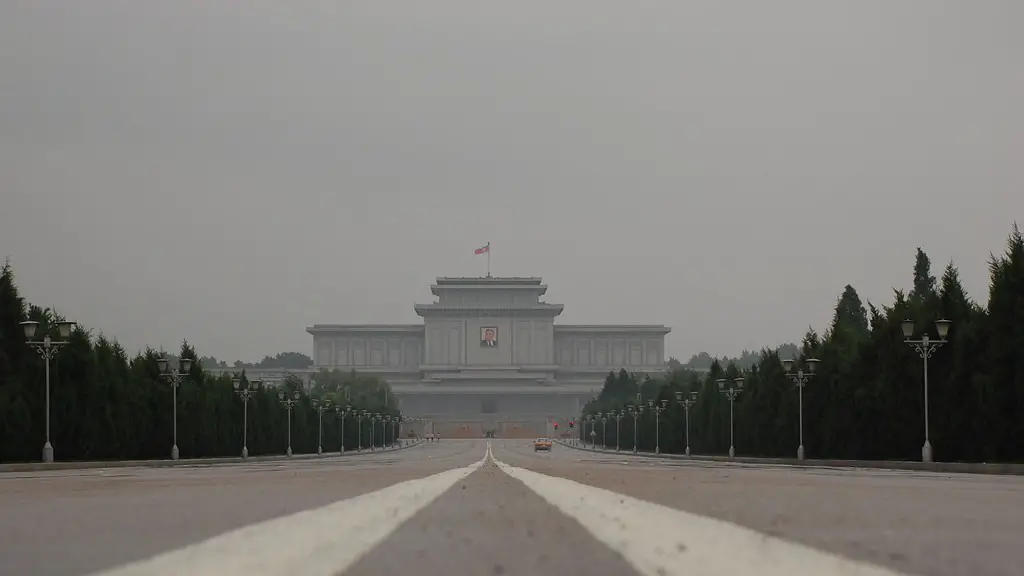When it comes to world opinion of North Korea, one word comes to mind: hatred. The Korean peninsula is a place of unresolved tension and animosity, with North Korea and its leaders bearing the brunt of the world’s criticism. But why does the world hate North Korea so much?
The answer can be found in North Korea’s long history of oppressive leadership and severe human rights abuses. North Korea is one of the few countries in the world to still practice a Stalinist form of government and its leaders have tyrannically ruled the country since the end of the Korean War in 1953.
For decades, the North Korean government has made a concerted effort to isolate its citizens from the outside world. The country’s media outlets are heavily censored, the internet is practically non-existent, and travel abroad is severely restricted. Propaganda and the cult of personality surrounding its leaders is rampant, with the population fed an image of totalitarian power and invincibility.
Though the North Korean government is highly oppressive, it is also particularly belligerent. The world has largely condemned the country for its frequent threats against its neighbors and its frequent and blatant violations of international law. In recent years, North Korea has developed nuclear weapons and ballistic missiles, vastly increasing the stakes in any potential confrontation.
The world’s hatred of North Korea is further fueled by its terrible human rights record. Reports and testimony from those who have managed to escape the country have revealed horrifying tales of enforced labor camps, torturous prisons, and widespread famine. These accounts and the country’s reluctance to acknowledge them or take any meaningful steps to address them have only added to the international pressure against North Korea.
The world’s hatred of North Korea is largely due to its decades of oppressive and belligerent rule, its belligerent foreign policy, and its dreadful human rights abuses. For as long as these oppressive practices are in place, it is unlikely that the world’s opinion of North Korea will ever improve.
The Arms Race
The world’s fear and hatred of North Korea was already high before the country began its extensive weapons testing program. However, the development of nuclear weapons and missiles has increased the tension surrounding the country to new heights.
With its recent tests of weapons with larger yields, longer ranges, and greater accuracy, North Korea has become more threatening and more powerful. The country has also made it clear that it is willing to use its weapons, having conducted tests at sea and in international waters.
The rapid escalation of North Korea’s weapons program has sent shockwaves around the world. Although the country is highly unlikely to launch a direct attack on the United States or its allies, the increased risk of regional tension has only added to the international community’s fear and hatred of North Korea.
The United States and its allies have responded to the weapons program with a mix of sanctions, military drills, and diplomatic outreach. It remains to be seen if such measures will succeed in containing the threat that North Korea poses or if the country will remain a dangerous force in the region.
International Sanctions
The international community has responded to North Korea’s weapons program and other acts of aggression with an unprecedented level of international sanctions. A series of UN Security Council resolutions have effectively cut the country off from much of the international banking system and have severely limited North Korean imports and exports.
The goal of these sanctions is to force North Korea to the negotiating table and to persuade the country to give up its nuclear weapons and ballistic missiles. However, there is no guarantee that such measures will be successful and many worry that the sanctions will only deepen the country’s international isolation.
The economic costs of the sanctions have been enormous, leading to widespread hardship for the North Korean people. Many worry that the country’s already poor human rights conditions could worsen in the wake of the sanctions and that such measures could impede the country’s long-awaited economic development.
Though the international sanctions have undoubtedly hurt North Korea and its people, it is unclear if they will achieve their stated goal. As long as North Korea remains defiant and committed to its nuclear weapons and ballistic missile programs, it is likely that the world’s hatred of North Korea will only continue to deepen.
Global Criticism
Though North Korea seems to be largely isolated in the eyes of the world, the country has recently faced a barrage of criticism from global institutions, governments, and media outlets. Leaders of major powers have denounced the oppressiveness of the North Korean regime and have issued increasingly strong warnings against the country’s nuclear ambitions.
The media, too, has been overwhelmingly critical of North Korea, with publications from all over the world highlighting the country’s human rights abuses, nuclear tests, and other acts of aggression. Many have accused North Korea of engaging in weapons of mass destruction and have called for the country to be held accountable.
Such criticism has only strengthened the world’s hatred of North Korea and has raised questions about the country’s future. Many now fear that North Korea is beyond the realm of diplomatic solutions and that only harsher measures, such as economic sanctions, military intervention, or regime change, will be able to change the regime’s calculus.
The world’s hatred of North Korea is well deserved. The country’s long history of oppression, aggression, and human rights abuses have earned it the contempt of the international community. Until North Korea begins to make meaningful changes, it is unlikely that the world’s opinion of it will ever improve.
Cultural Suppression
North Korea’s oppressive regime has long sought to limit its citizens’ access to outside influences. The government strictly regulates access to the internet, media, and education and has made it difficult for citizens to access anything that is not approved by the state.
The censorship and suppression of cultural expression has done a great deal to increase the world’s hatred of North Korea. The country’s refusal to engage with international organizations and to take meaningful steps to improve the lives of its citizens has only added to the world’s frustration.
The Cult of Kim
One of the most controversial aspects of North Korea is the cult of personality surrounding its leaders, particularly current leader Kim Jong Un. The North Korean government has gone to great lengths to enshrine its leadership, depicting them as wise, powerful, and infallible.
This cult of personality has infuriated many in the international community, as it has served to legitimize and justify the regime’s oppressive policies. The world’s hatred of North Korea has only been heightened by its leaders’ callous disregard for their citizens and their refusal to acknowledge the dire state of the country.
North Korean Defiance
The hatred the world feels towards North Korea has only been intensified by the country’s steadfast refusal to change its belligerent behavior. The North Korean government has been defiant in the face of international pressure, refusing to relent on any of its weapons programs or to make any meaningful concessions.
The world’s deep discomfort with North Korea’s obstinacy has been magnified by its repeated violations of international law. The country’s refusal to abide by UN Security Council resolutions or adhere to any of the international community’s demands has only added to the international community’s frustration.
North Korean Solidarity
Though the world is largely unified in its hatred of North Korea, there are some who have spoken out in solidarity with the North Korean people. Human rights organizations, non-governmental organizations, and some governments have highlighted the plight of the North Korean people and have called for the international community to take action.
Such calls for action have been largely ignored, however, as most still view North Korea as a rogue state that does not deserve leniency or sympathy. Until North Korea takes meaningful steps to improve its human rights record, it is unlikely that the world’s hatred of North Korea will abate.





